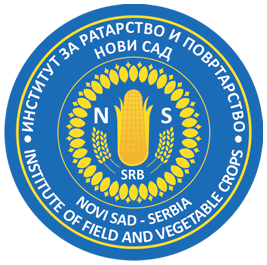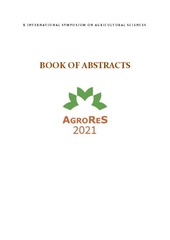Приказ основних података о документу
Biorational CO2 fumigaton of oil-seed rape: insecticidal potential and effect on seed quality
| dc.creator | Gvozdenac, Sonja | |
| dc.creator | Marjanović-Jeromela, Ana | |
| dc.creator | Zeremski, Tijana | |
| dc.creator | Stojanov, Nadežda | |
| dc.creator | Ovuka, Jelena | |
| dc.creator | Cvejić, Sandra | |
| dc.creator | Prvulović, Dejan | |
| dc.date.accessioned | 2021-11-01T08:59:27Z | |
| dc.date.available | 2021-11-01T08:59:27Z | |
| dc.date.issued | 2021 | |
| dc.identifier.isbn | 978-99938-93-69-1 | |
| dc.identifier.uri | http://fiver.ifvcns.rs/handle/123456789/2367 | |
| dc.description.abstract | Fumigation with carbon dioxide (CO2) is very effective biorational alternative to toxic chemical fumigants. It is widely used for a variety of commodities, and the efficacy against insect pests is well documented. However, the information on its effect on the quality of seeds, oilseeds in particular, is scarce. This information is important because oilseeds are more difficult to store and preserve, compared to cereal grains or legumes, and are more susceptible to quality deterioration due to high content of oil and fatty acids. This work aimed to assess the efficacy of CO2 fumigation of oilseed-rape in controlling Plodia interpunctella, in relation to seed vitality and quality. CO2 was applied to oil-seed rape artificially infested with P. interpunctella larvae, at different levels (62, 92 and 96%) in gas-tight bags. The mortality of larvae was observed after four different exposure periods (1, 2 and 24 h, and 7 days) which represented different subtreatments. After seven days, seed vitality (germination energy and germination) and seed quality (content and composition of oil and fatty acids) were assessed. The lowest concentration (62%) was effective in suppression of P. interpunctella larvae only after 7 days of exposure, when the total mortality was recorded (100%). Two highest CO2 concentrations caused relatively high mortality two hours after the exposure (78, 83%, respectively), although 22% of larvae recovered rapidly after the bags were opened. | sr |
| dc.language.iso | en | sr |
| dc.publisher | Banja Luka : University of Banja Luka, Faculty of Agriculture | sr |
| dc.rights | openAccess | sr |
| dc.rights.uri | https://creativecommons.org/licenses/by/4.0/ | |
| dc.source | Book of Abstracts, 10th International Symposium on Agricultural Sciences “AgroReS 2021", 27-29 May 2021, Trebinje, Bosnia and Herzegovina | sr |
| dc.subject | Carbon dioxide | sr |
| dc.subject | controlled atmosphere | sr |
| dc.subject | canola | sr |
| dc.subject | Plodia interpunctella | sr |
| dc.subject | germination | sr |
| dc.title | Biorational CO2 fumigaton of oil-seed rape: insecticidal potential and effect on seed quality | sr |
| dc.type | conferenceObject | sr |
| dc.rights.license | BY | sr |
| dc.citation.epage | 46 | |
| dc.citation.spage | 46 | |
| dc.identifier.fulltext | http://fiver.ifvcns.rs/bitstream/id/6378/bitstream_6378.pdf | |
| dc.identifier.rcub | https://hdl.handle.net/21.15107/rcub_fiver_2367 | |
| dc.type.version | publishedVersion | sr |


